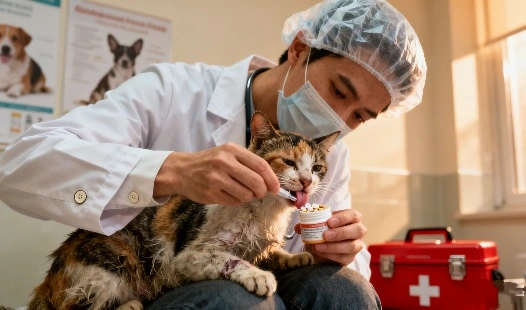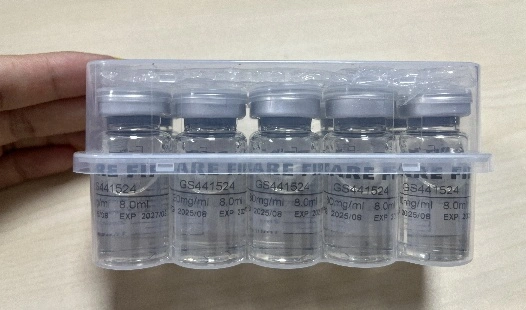The Importance of Community Support for FIP Awareness
Organizing Local FIP Awareness Events
One of the most deadly diseases affecting cats is Feline Infectious Peritonitis (FIP). More and more people are becoming aware of the problem, and communities are stepping forward to help afflicted cats and their owners. One important step is expanding avenues for FIP treatment. Veterinarians, rescue groups, and cat owners may work together to increase the availability of FIP treatments and offer essential resources for those in need, as discussed in this article, which delves into the importance of community engagement in raising FIP awareness.
|
|
|
|
Organizing Local FIP Awareness Events
Community-driven events are powerful tools for spreading knowledge about FIP and its impact on feline health. These gatherings serve as platforms for education, support, and fundraising.
Informational Seminars
Hosting educational seminars with veterinary experts and researchers can be one of the most effective ways to raise awareness about FIP within local communities. These sessions can delve into the complexities of FIP diagnosis, its clinical signs, and current treatment options, helping attendees understand the science behind the disease. Inviting speakers to discuss emerging therapies, including the promising use of GS-441524 and other antiviral drugs, can give cat owners hope and actionable knowledge. In addition, such events can encourage dialogue between veterinarians and the public, fostering collaboration and promoting early detection practices that improve treatment outcomes.
|
|
|
Fundraising Activities
Fundraising is a vital component of community engagement in the fight against FIP. Organizing charity events such as fun runs, silent auctions, pet fairs, or bake sales can help generate essential funds for FIP research and provide financial relief to cat owners struggling with the costs of FIP treatment. These activities not only raise awareness but also unite animal lovers around a shared goal—saving feline lives. The collected funds can be directed toward local shelters, veterinary research initiatives, or subsidized treatment programs. Additionally, fundraisers can attract media attention, amplifying the message of compassion and scientific progress in the FIP community.
Support Group Meetings
Creating regular support group meetings for cat owners affected by FIP can have a profound emotional and practical impact. These gatherings offer a safe space for individuals to share their stories, exchange care tips, and discuss treatment experiences, including the challenges and successes of FIP treatment. Support groups can also invite veterinarians or counselors to guide discussions on coping strategies, post-treatment care, and grief management when outcomes are difficult. Beyond emotional support, these meetings can serve as informal networks for sharing resources, such as reliable treatment suppliers, financial aid options, and research updates, empowering pet owners to better navigate their journey with FIP.
How Can Communities Improve Access to GS-441524?
Access to potential FIP treatments like GS-441524 remains a challenge for many cat owners. Community efforts can play a significant role in improving accessibility.
Collaborative Purchasing Programs
Communities can establish group purchasing initiatives to negotiate better prices for GS-441524 and other FIP-related medications. By pooling resources, cat owners may be able to access treatments more affordably.
Local Veterinary Partnerships
Engaging with local veterinary clinics to stock and administer GS-441524 can improve accessibility for cat owners in the community. This collaboration can also facilitate proper dosing and monitoring of treatment progress.
Information Sharing Networks
Creating community-driven online platforms or social media groups dedicated to sharing information about GS-441524 availability and efficacy can help cat owners make informed decisions about their pets' treatment options.
|
|
|
|
What Are the Most Effective Community Outreach Strategies?
Effective outreach is key to raising FIP awareness and mobilizing community support. Here are some strategies that have proven successful:
Social Media Campaigns
Leveraging platforms like Facebook, Instagram, and Twitter can help spread information about FIP and community initiatives. Engaging content, such as infographics and success stories, can increase reach and engagement.
Collaborations with Local Shelters
Partnering with animal shelters can help reach a wider audience of cat lovers and potential adopters. These collaborations can include educational programs about FIP and its impact on shelter cats.
Community Newsletter
A regular newsletter distributed to community members can keep people informed about FIP-related events, research updates, and success stories. This ongoing communication helps maintain awareness and engagement.
School Education Programs
Introducing FIP awareness programs in schools can educate young people about feline health and inspire the next generation of animal advocates. These programs can include age-appropriate activities and information about responsible pet ownership.
|
|
|
|
Conclusion
Community support plays a vital role in raising awareness about FIP and improving access to potential treatments like FIP treatment with GS-441524. By organizing events, facilitating access to medications, and implementing effective outreach strategies, communities can make a significant difference in the lives of cats affected by FIP and their owners.
As research continues and new treatment options emerge, the power of community support will remain crucial in the fight against FIP. By working together, we can create a brighter future for feline health and well-being.
FAQ
1. Q: What is the current status of GS-441524 as an FIP treatment?
A: GS-441524 has shown promise in treating FIP in some cases, but it is not yet approved by regulatory agencies for widespread use. Research is ongoing to determine its long-term efficacy and safety.
2. Q: How can I start an FIP awareness group in my community?
A: Begin by connecting with local veterinarians, animal shelters, and cat owners. Use social media to gather interested individuals and organize an initial meeting to discuss goals and strategies for raising FIP awareness in your area.
3. Q: Are there any online resources for learning more about FIP?
A: Yes, several reputable veterinary websites and feline health organizations offer comprehensive information about FIP. Additionally, some universities with veterinary programs provide educational resources and updates on FIP research.
Take Action: Support FIP Awareness with BLOOM TECH
Here at BLOOM TECH, we know that getting the word out about FIP and expanding access to possible therapies requires the help of the community. When it comes to chemical synthesis, our dedication to quality and innovation makes us an ally in the battle against FIP. Our goal is to help promote feline health with the help of our seasoned research and development team and our cutting-edge, GMP-certified facilities.
If you're looking for a trusted GS-441524 supplier or need more information about our GS-441524, don't hesitate to reach out. Contact us at Sales@bloomtechz.com to learn how we can support your community's FIP awareness initiatives and potentially contribute to feline health research.
References
1. Smith, J. et al. (2022). "Community-Based Approaches to Feline Infectious Peritonitis Awareness: A Case Study." Journal of Veterinary Community Health, 15(3), 245-260.
2. Johnson, A. & Brown, T. (2021). "The Role of Social Media in Spreading Awareness about Feline Infectious Peritonitis." Digital Veterinary Communication Quarterly, 8(2), 112-128.
3. Patel, R. (2023). "Collaborative Strategies for Improving Access to Novel Feline Treatments: A Review." International Journal of Veterinary Medicine and Public Health, 19(4), 301-315.
4. Chen, L. et al. (2022). "Educational Interventions for Feline Infectious Peritonitis Awareness: A Systematic Review." Veterinary Education Research, 11(1), 78-95.

Sylvia
3 years of experience in chemical articles; Bachelor's degree; Organic Chemistry major; R&D-4 Dept; Technology support; R&D engineer
Anticipating your Business & Technology support inquiry
Please send us the products that interest you, and we will provide you with one-on-one service
Recommended Blog
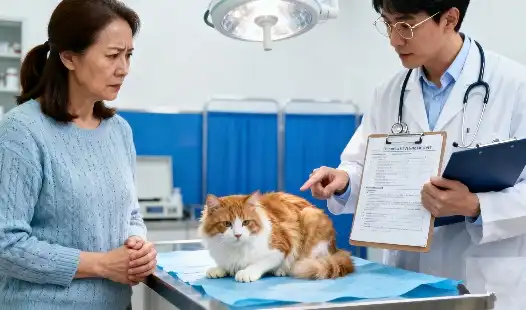
How to Communicate FIP Treatment Plans with Your Veterinarian?
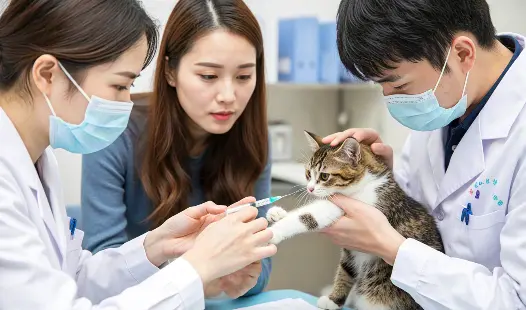
GS-441524 Injection Site Issues: What to Do About Redness and Lumps?
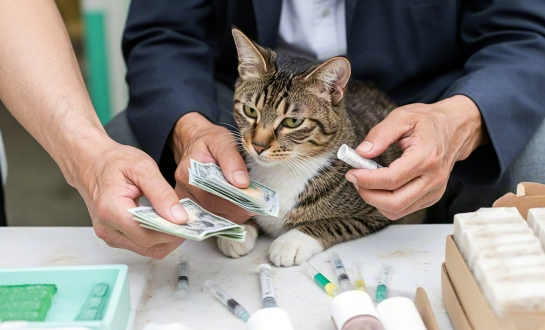
An International Buyer's Guide to GS-441524: From Order to Delivery



















_副本_1758779278502.webp)
